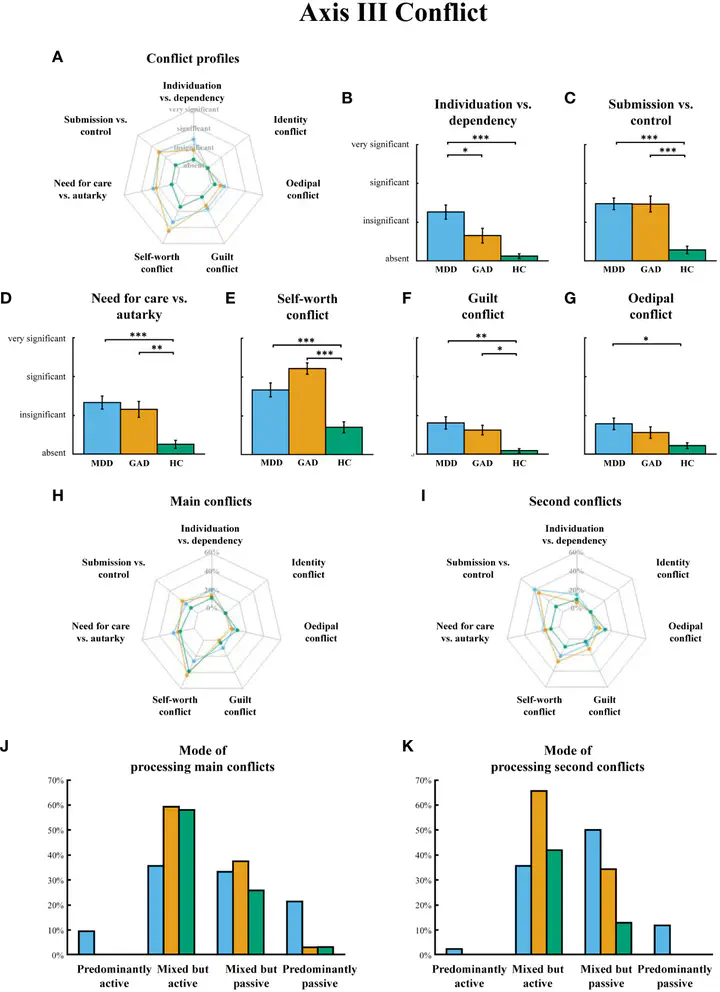Psychodynamic Profiles of Major Depressive Disorder and Generalized Anxiety Disorder in China
 OPD Axis III “conflict” profiles in MDD, GAD and HC.
OPD Axis III “conflict” profiles in MDD, GAD and HC.
Abstract
Traditional clinical diagnoses relying on symptoms may overlook latent factors that illuminate mechanisms and potentially guide treatment. The Operationalized Psychodynamic Diagnosis (OPD) system may compensate for symptom-based diagnosis by measuring psychodynamic profiles underlying mental disorders through conflicts and structure axes. However, OPD has not been widely adopted in China, and it remains unclear whether OPD can be used as an effective approach to distinguish between depression and anxiety. The current study aims to adopt the OPD system to investigate the psychodynamic profiles of major depressive disorder (MDD) and generalized anxiety disorder (GAD) in China, targeting patients with “pure” symptoms without comorbidity. We recruited 42 MDD patients, 32 GAD patients, and 31 healthy controls (HC), and assessed their self-report depression and anxiety symptoms, along with their underlying psychodynamic profiles through OPD interviews. Overall, both MDD and GAD patients showed more prominent conflict issues and lower levels of structure than HC. The MDD and GAD groups yielded different conflict profiles and conflict processing modes when processing their second conflicts. Importantly, the multi-dimensional psychodynamic profiles achieved machine learning classification of clinical groups with an accuracy of 0.84, supporting successful distinction of MDD and GAD patients. In conclusion, the OPD demonstrated sensitivity in revealing distinct psychodynamic profiles underlying “pure” depression and anxiety clinical populations in China. This work calls for future incorporation of OPD as a tool to investigate psychodynamic formulations underlying mental disorders, compensating for traditional symptom-based diagnostic approaches to guide precise individualized interventions.
Supplementary notes can be added here, including code, math, and images.